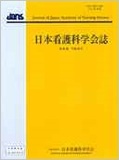Japanese
English
- 販売していません
- Abstract 文献概要
- 参考文献 Reference
- サイト内被引用 Cited by
要旨
目的:「医療従事者の倫理的感受性」の概念分析を行い,定義を明らかにすることである.
方法:Rodgersの概念分析アプローチ法を用いた.データ収集には5つのデータベースPubMed,CINAHL Plus with Full Text,PsycINFO,医学中央雑誌web版,CiNii Articlesを使用した.検索用語は「ethical sensitivity」,「moral sensitivity」,「倫理的感受性」とし,計47件の論文を分析対象とした.
結果:属性として5カテゴリー【倫理的状況に反応して感情が表れる】,【対象者中心の医療における自己の役割への責任感】【倫理的問題に気づく能力】【倫理的問題を明確にする能力】【倫理的問題に立ち向かう能力】を抽出した.先行要件には2カテゴリー,帰結には3カテゴリーを抽出した.
結論:医療従事者の倫理的感受性は,倫理的問題の解決において意味をもち,問題を抽出するだけでなく立ち向かおうとすることを含む総合的な能力であった.
Purpose: To conduct a concept analysis and clarify the definition of medical professionals' ethical sensitivity.
Method: Rodger's concept analysis method was used. Five databases were searched: MEDLINE, CINAHL Plus with Full Text, PsycINFO, Ichushi Web, and CiNii Articles. Search terms included: “ethical sensitivity”, “moral sensitivity”, and “rinriteki-kanjusei”. A total of 47 published articles were analyzed.
Results: The following five attributes were identified: 1) exhibition of an emotional response to an ethical situation, 2) responsibility for one's role in person-centered medicine, 3) capacity for awareness of ethical issues, 4) capacity for understanding ethical issues, and 5) capacity to take a positive stance towards solving ethical problems. Furthermore, two antecedent factors and three consequences were identified.
Conclusion: Medical professionals' ethical sensitivity was significant contributor to solving ethical problems. This synthetic capacity included not only explaining ethical problems but also taking a positive stance to facing up to these problems.
Copyright © 2016, Japan Academy of Nursing Science. All rights reserved.


